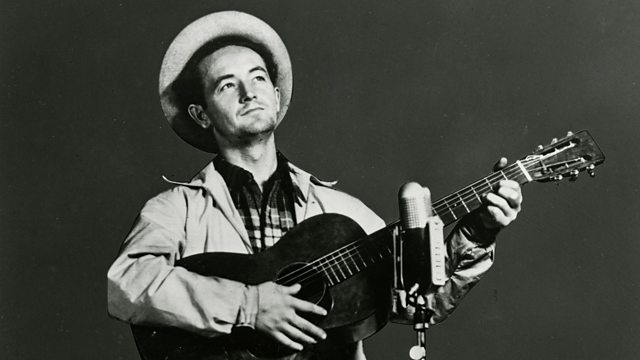Even after doing research on Folkways Recording Label and learning about their 62 year history, I still wasn’t quite sure what to expect from our visit. Part of this uncertainty stemmed from my unclear definition of folk and what it means to be a folk artist. There is a fallacy that folk artists are untrained, but this could not be farther from the truth. True folk artists are heavily trained within their own traditions and cultures. I really appreciated our discussion with Dr. Jim Deutsch on the definition of folklife. Dr. Deutsch described folklife as, “consisting of traditional materials passed from person to person within a group, without being continually referenced to a fixed source”.
Technically, this blog post should be solely on Folkways Recording Label, but since we were lucky to be able to talk to 8 professionals from the Smithsonian Center for Folklife and Cultural Heritage, I will also mention the Folklife Festival in this post. While on a bit of a tangent, I would also like to thank Meredith Holmgren for arranging our visit to Folkways.

Woody Guthrie, one of Folkways early clients
I’ll start off with a quick history of Folkways. Folkways Recording is a nonprofit record label that was founded in 1948 by Moses Asch with the original goal to “record and document the entire world of sound.” Smithsonian acquired Folkways from the Asch estate in 1987 “to ensure that the sounds and genius of its artists would continue to be available to future generations.” Folkways has a longstanding belief that musical and cultural diversity contributes to the vitality and quality of life throughout the world, which can be seen through their mission of
“…supporting cultural diversity and increased understanding among peoples through the documentation, preservation, and dissemination of sound.”
Their current collection consists of more than 4,000 albums and 60,000 tracks along with videos, playlists, podcasts, teacher lesson plans, and Smithsonian Folkways Magazine. Folkways also has their outreach program, Smithsonian Global Sound education initiative which is described as a “a worldwide educational online download network that delivers easy access to tens of thousands of audio recordings and hundreds of video features..” on their website. I learned more about their initiative at our site visit and was told that the Smithsonian works with larger distributors to make collections, essays, and curricula available to universities. To learn more about their education programs, check out the “explore” and “learn” pages on their website. Here you can find lesson plans, playlists, articles, videos, and podcasts on specific artists and topics.

The group Lula Wiles, one of Folkways newer clients
One big takeaway for me as a future educator was learning about the myriad of free education tools on their website. They provide great information on how to incorporate world music into the classroom. As a teacher, I am excited to use the lesson plans provided along with the many videos, playlists, and podcasts. In the future, I could see myself working with Folkways, and more specifically their education initiative, by developing lesson plans and more outreach programs. While at this point, I have no expertise in world music, this is something I hope to gain knowledge on. I would love to see folkways go out into the community and maybe offer workshops and classes on world music.
After leaving Folkways Recording and Folklife Festival, I would like to know how these two branches of the Smithsonian work together. Does Folkways ever publish articles or records related to that years theme of the festival? I would also love to one day in the future be able to visit the Folklife festival to get the full experience. Our visit to Folkways also cleared up many questions I had, especially about their education programs. And lastly the important question of, “what is folk, really?” was finally answered.
References
James I. Deutsch. George Washington University, May 2019, home.gwu.edu/~deutsch/.
“Lula Wiles.” YouTube, YouTube, www.youtube.com/watch?v=yFo0ivxzxmk.
“Meredith Holmgren.” Academia, Smithsonian, si.academia.edu/MeredithHolmgren.
“Mission and History.” Smithsonian Folkways Recordings, folkways.si.edu/mission-and-history.
“Moses Asch.” Smithsonian Center for Folklife and Cultural Heritage, folklife.si.edu/legacy-honorees/moses-asch/smithsonian.
“Smithsonian Folklife Festival.” Smithsonian Folklife Festival, festival.si.edu/.
“Smithsonian Folkways Recordings.” Smithsonian Folkways Recordings, folkways.si.edu/.
“Woody Guthrie: Three Chords and the Truth.” BBC Four, BBC, 8 Dec. 2019, www.bbc.co.uk/programmes/m00048qp.
